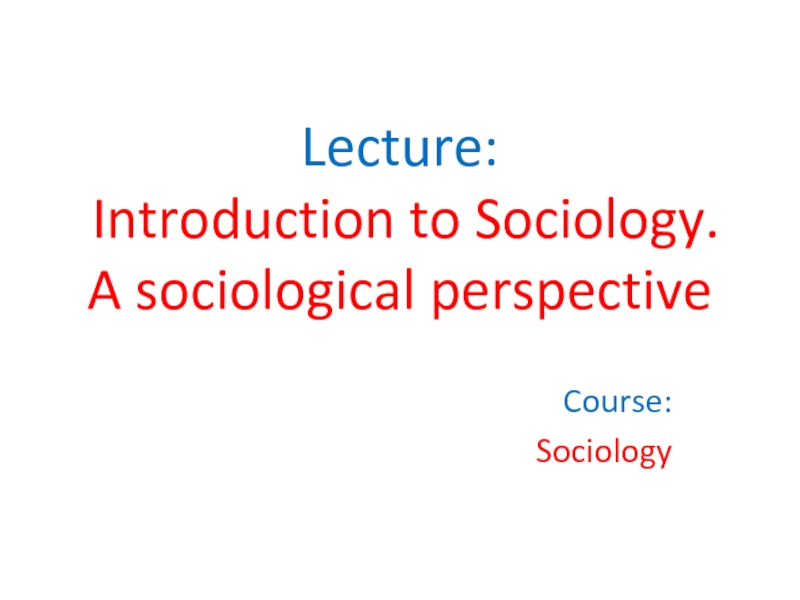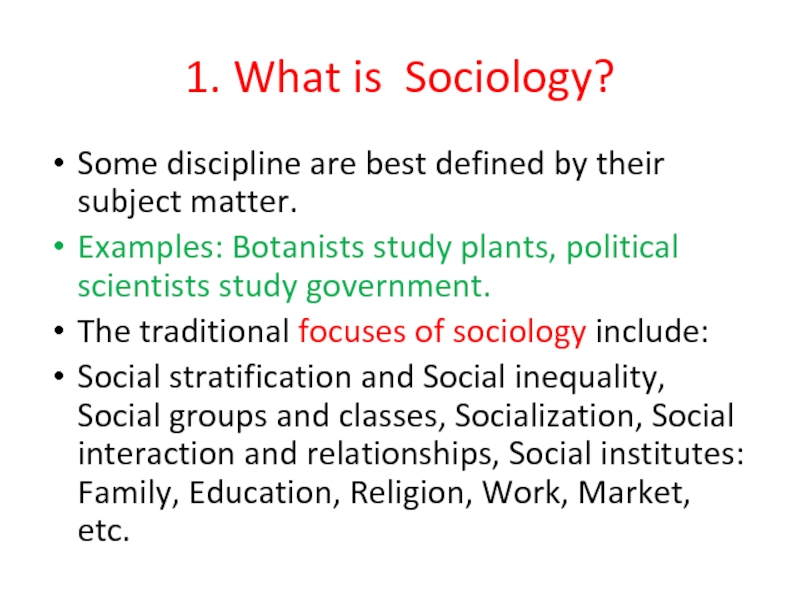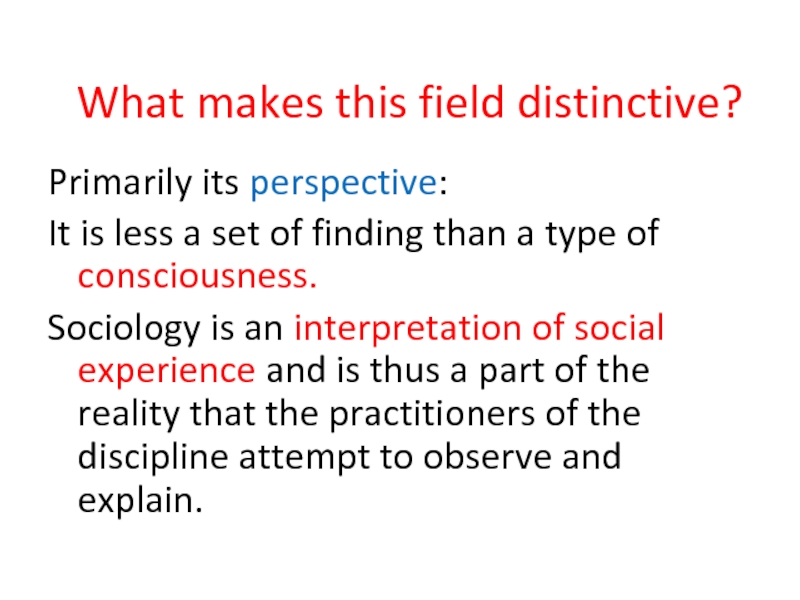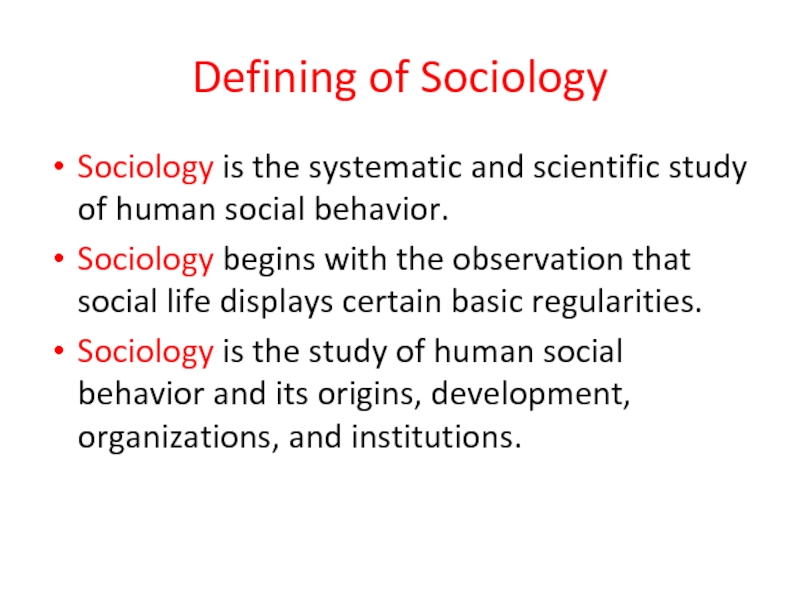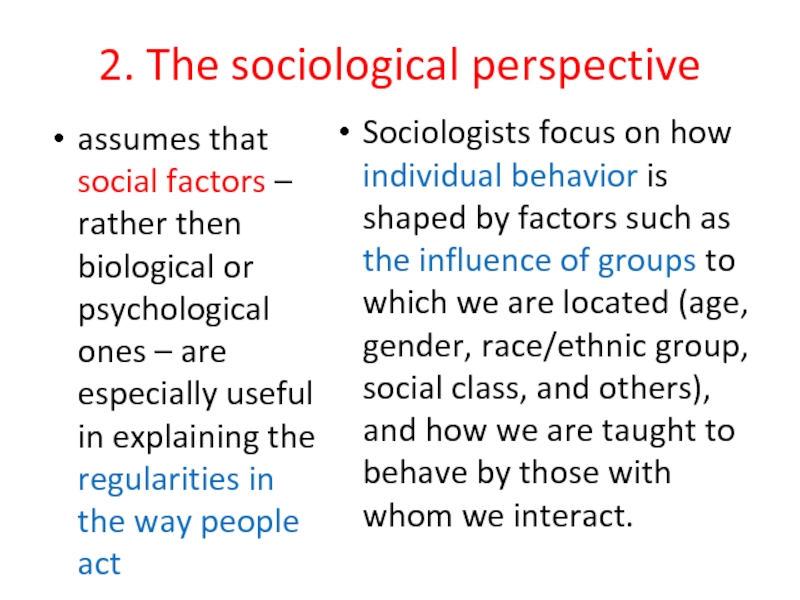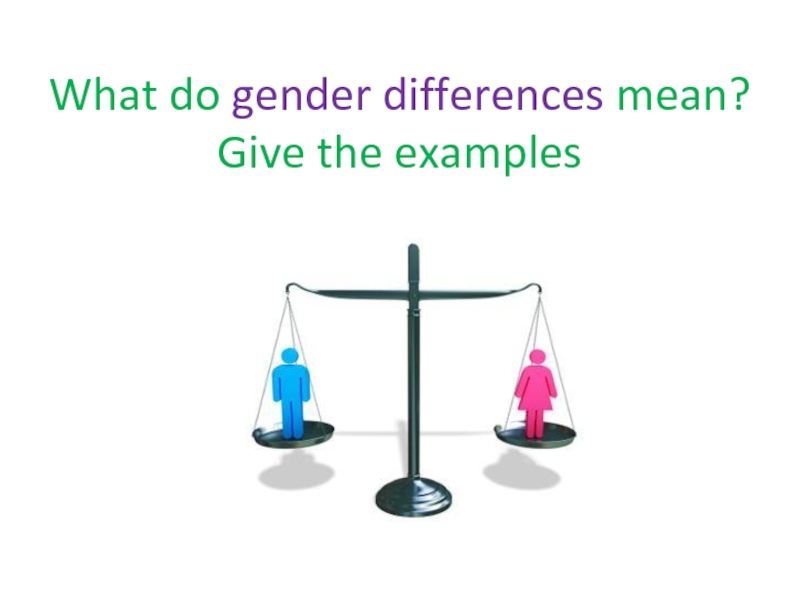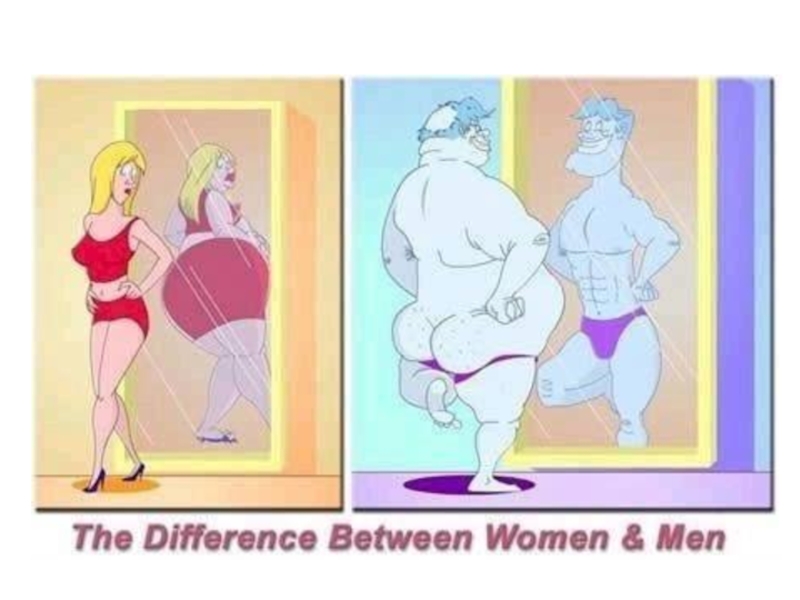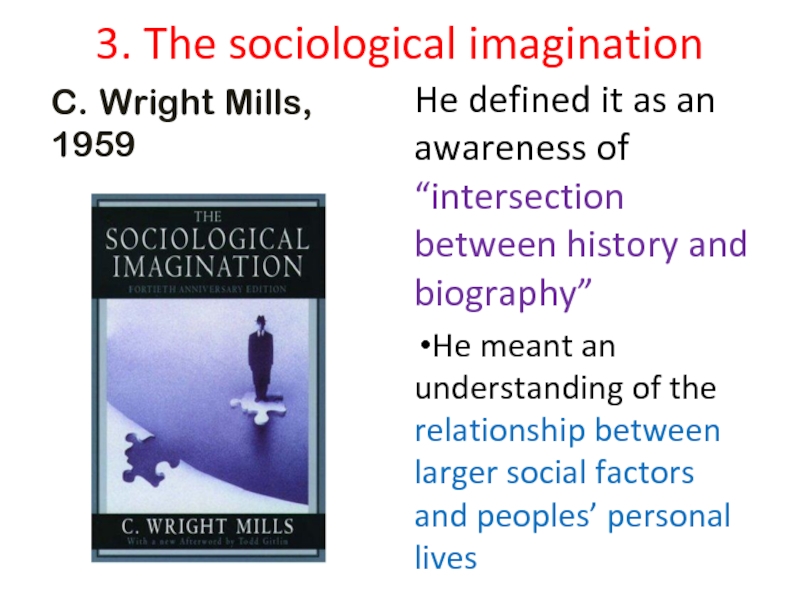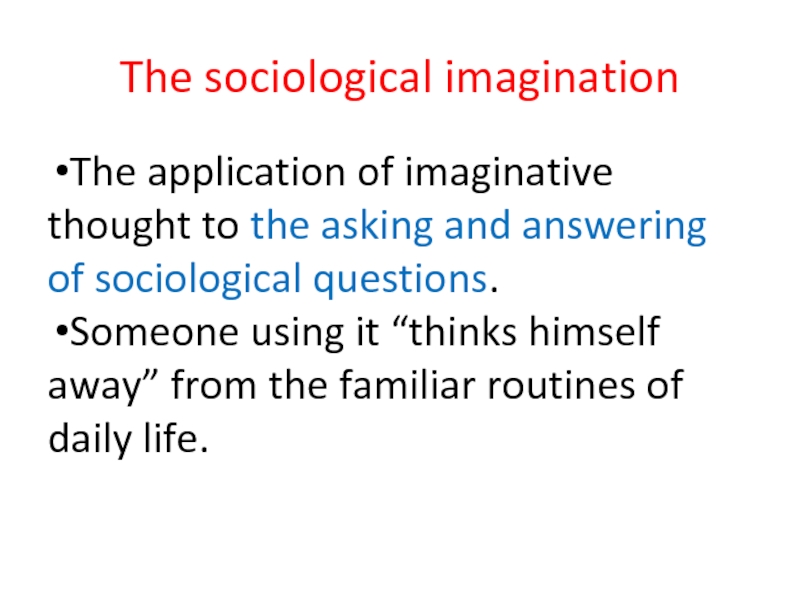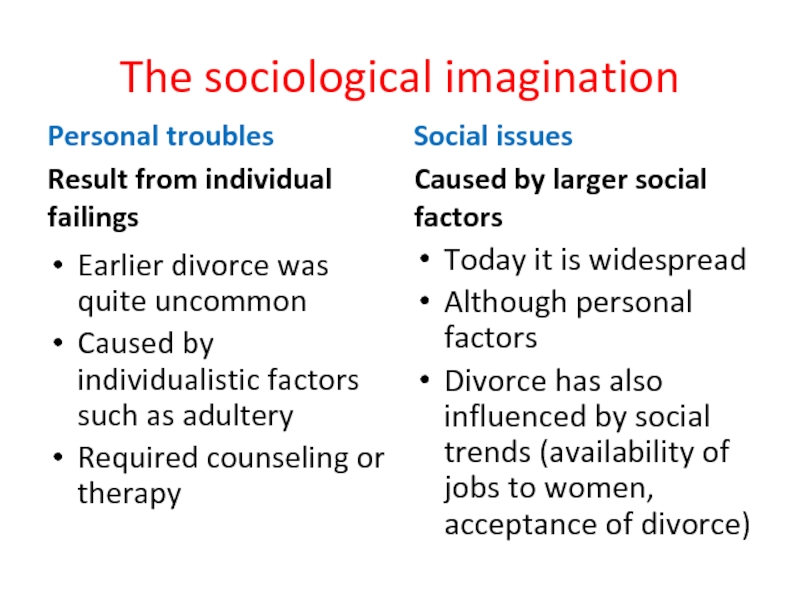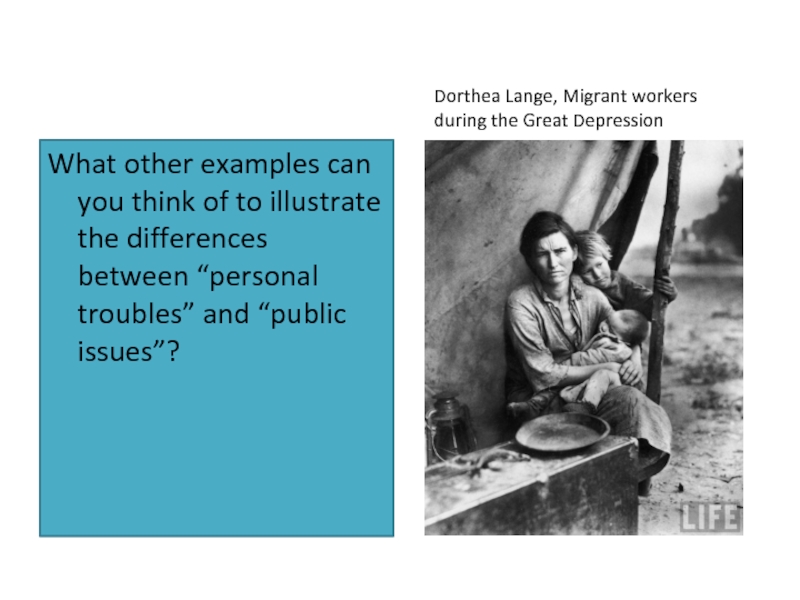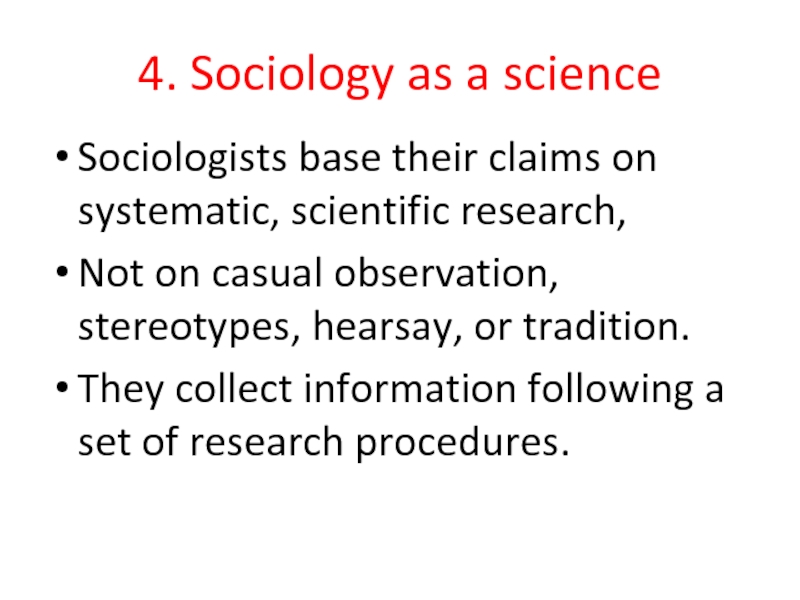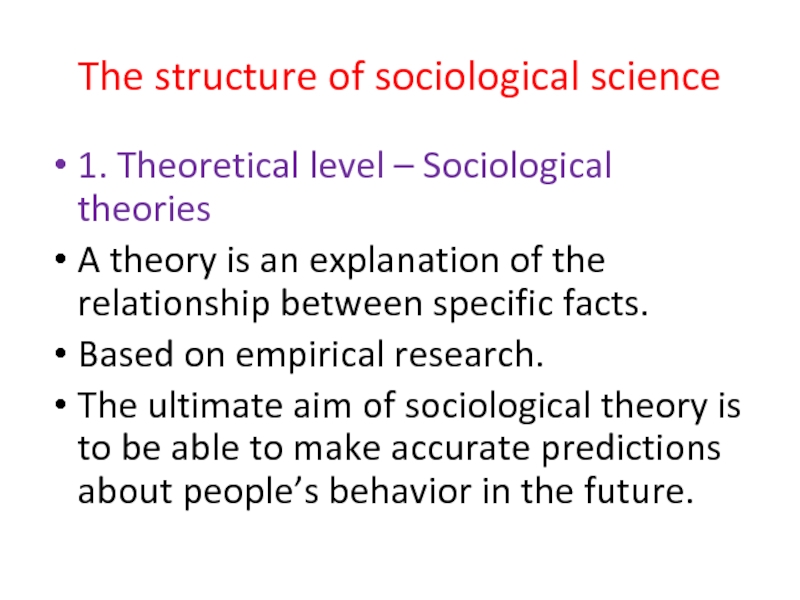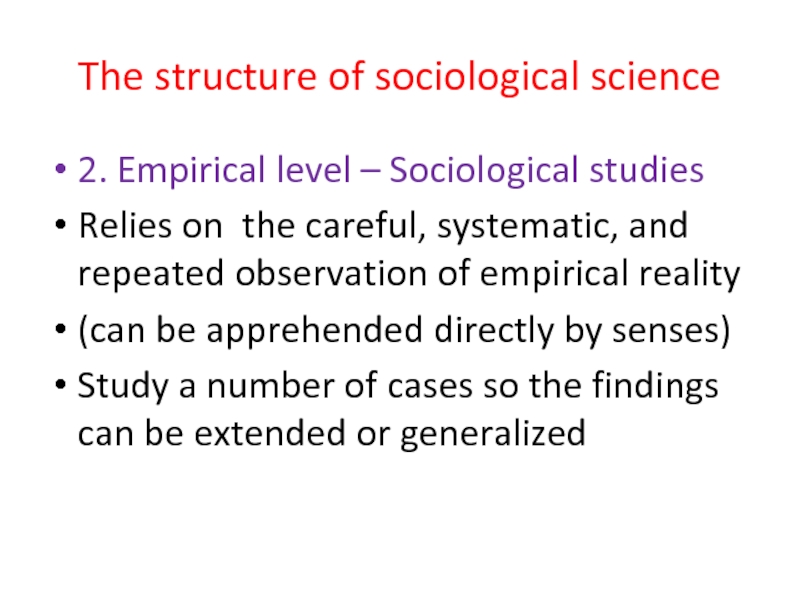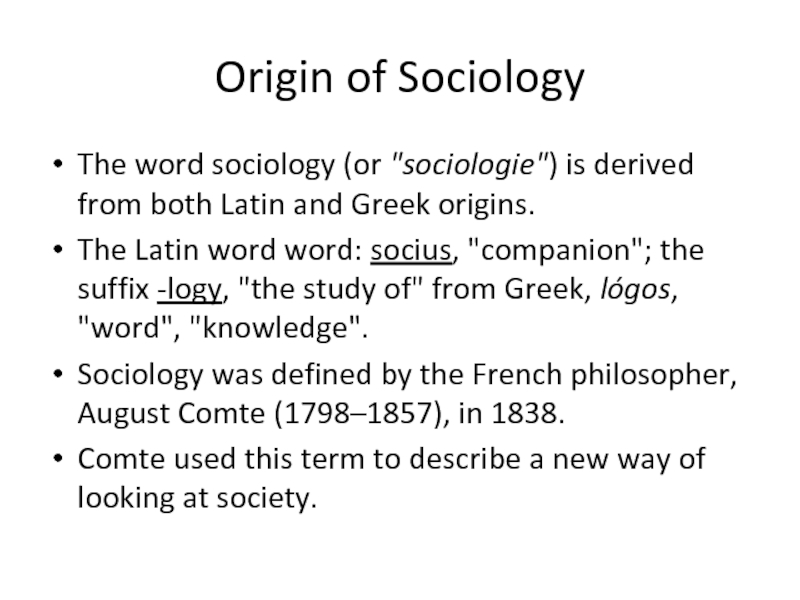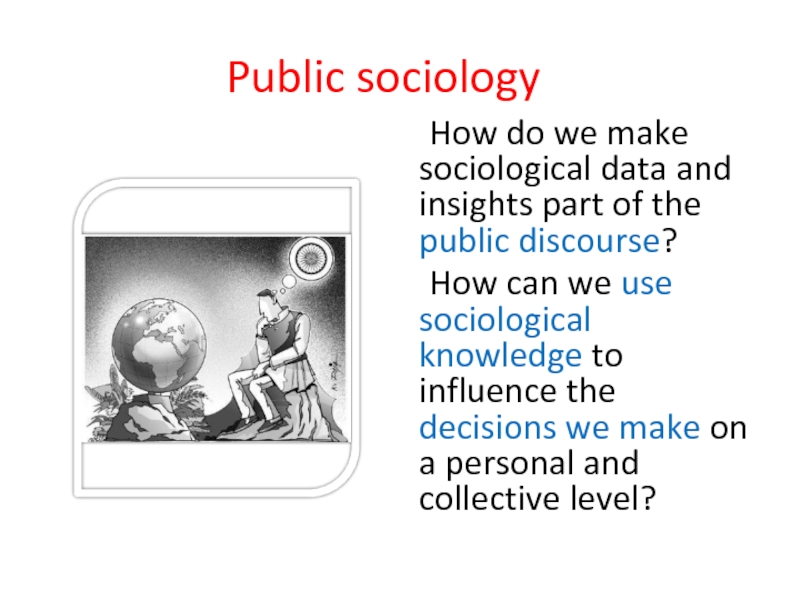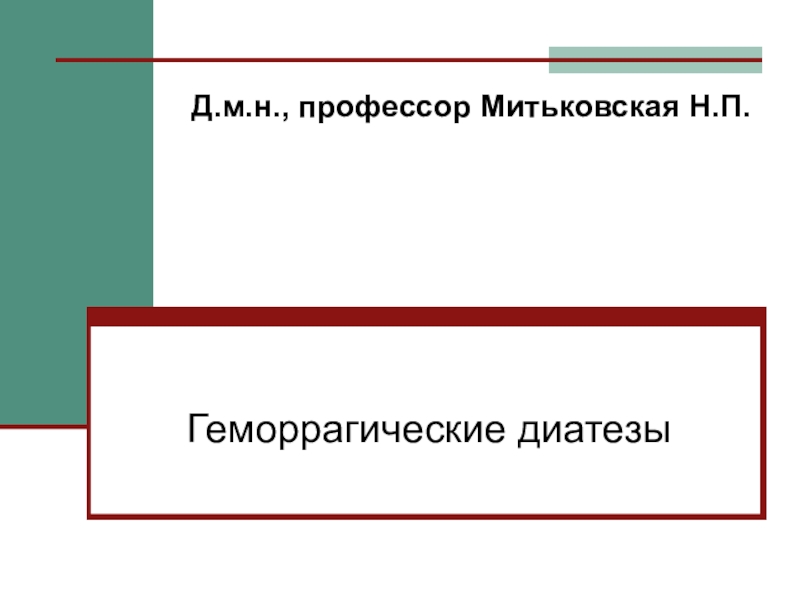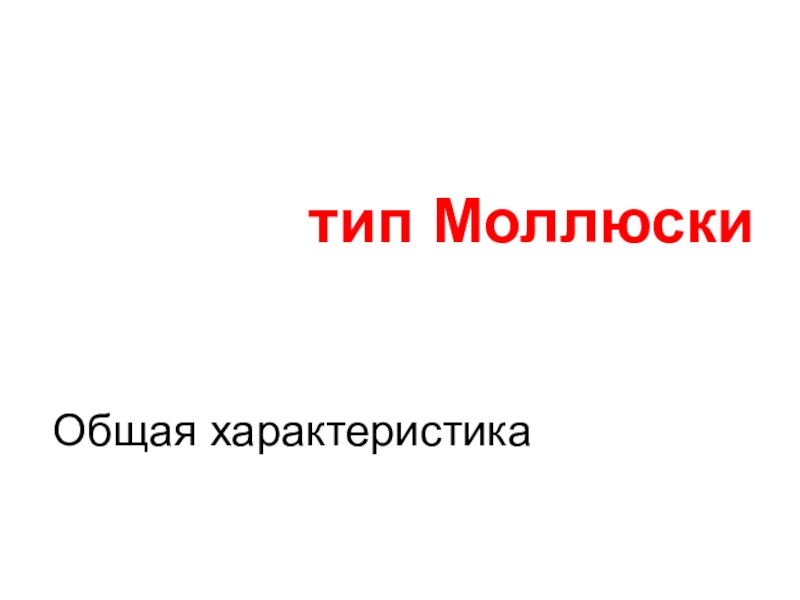Разделы презентаций
- Разное
- Английский язык
- Астрономия
- Алгебра
- Биология
- География
- Геометрия
- Детские презентации
- Информатика
- История
- Литература
- Математика
- Медицина
- Менеджмент
- Музыка
- МХК
- Немецкий язык
- ОБЖ
- Обществознание
- Окружающий мир
- Педагогика
- Русский язык
- Технология
- Физика
- Философия
- Химия
- Шаблоны, картинки для презентаций
- Экология
- Экономика
- Юриспруденция
Lecture: Introduction to Sociology. A sociological perspective
Содержание
- 1. Lecture: Introduction to Sociology. A sociological perspective
- 2. Plan of lecture:1. What is Sociology?2. The sociological perspective3. The sociological imagination4. Sociology as a science
- 3. 1. What is Sociology?Some discipline are best
- 4. What makes this field distinctive?Primarily its perspective:It
- 5. Defining of SociologySociology is the systematic and
- 6. 2. The sociological perspectiveassumes that social factors
- 7. The sociological perspectiveDoes not focus on individuals
- 8. What do gender differences mean? Give the examples
- 9. Слайд 9
- 10. 3. The sociological imaginationC. Wright Mills, 1959He
- 11. The sociological imaginationThe application of imaginative thought
- 12. The sociological imaginationPersonal troublesResult from individual failingsEarlier
- 13. What other examples can you think of
- 14. 4. Sociology as a scienceSociologists base their
- 15. The structure of sociological science1. Theoretical level
- 16. The structure of sociological science2. Empirical level
- 17. Origin of Sociology The word sociology (or
- 18. Public sociology S How do we make sociological
- 19. Скачать презентанцию
Слайды и текст этой презентации
Слайд 2Plan of lecture:
1. What is Sociology?
2. The sociological perspective
3. The
sociological imagination
Слайд 31. What is Sociology?
Some discipline are best defined by their
subject matter.
Examples: Botanists study plants, political scientists study government.
The traditional
focuses of sociology include:Social stratification and Social inequality, Social groups and classes, Socialization, Social interaction and relationships, Social institutes: Family, Education, Religion, Work, Market, etc.
Слайд 4What makes this field distinctive?
Primarily its perspective:
It is less a
set of finding than a type of consciousness.
Sociology is an
interpretation of social experience and is thus a part of the reality that the practitioners of the discipline attempt to observe and explain.Слайд 5Defining of Sociology
Sociology is the systematic and scientific study of
human social behavior.
Sociology begins with the observation that social life
displays certain basic regularities.Sociology is the study of human social behavior and its origins, development, organizations, and institutions.
Слайд 62. The sociological perspective
assumes that social factors – rather then
biological or psychological ones – are especially useful in explaining
the regularities in the way people actSociologists focus on how individual behavior is shaped by factors such as the influence of groups to which we are located (age, gender, race/ethnic group, social class, and others), and how we are taught to behave by those with whom we interact.
Слайд 7The sociological perspective
Does not focus on individuals in isolation, but
rather on the impact of social forces on human behavior.
Sociologists
study collectivities such as groups, organizations, and whole societies. Слайд 103. The sociological imagination
C. Wright Mills, 1959
He defined it as
an awareness of “intersection between history and biography”
He meant an
understanding of the relationship between larger social factors and peoples’ personal livesСлайд 11The sociological imagination
The application of imaginative thought to the asking
and answering of sociological questions.
Someone using it “thinks himself away”
from the familiar routines of daily life.Слайд 12The sociological imagination
Personal troubles
Result from individual failings
Earlier divorce was quite
uncommon
Caused by individualistic factors such as adultery
Required counseling or therapy
Social
issuesCaused by larger social factors
Today it is widespread
Although personal factors
Divorce has also influenced by social trends (availability of jobs to women, acceptance of divorce)
Слайд 13What other examples can you think of to illustrate the
differences between “personal troubles” and “public issues”?
Dorthea Lange, Migrant workers
during the Great DepressionСлайд 144. Sociology as a science
Sociologists base their claims on systematic,
scientific research,
Not on casual observation, stereotypes, hearsay, or tradition.
They collect
information following a set of research procedures.Слайд 15The structure of sociological science
1. Theoretical level – Sociological theories
A
theory is an explanation of the relationship between specific facts.
Based
on empirical research.The ultimate aim of sociological theory is to be able to make accurate predictions about people’s behavior in the future.
Слайд 16The structure of sociological science
2. Empirical level – Sociological studies
Relies
on the careful, systematic, and repeated observation of empirical reality
(can be apprehended directly by senses)
Study a number of cases so the findings can be extended or generalized
Слайд 17Origin of Sociology
The word sociology (or "sociologie") is derived
from both Latin and Greek origins.
The Latin word word:
socius, "companion"; the suffix -logy, "the study of" from Greek, lógos, "word", "knowledge". Sociology was defined by the French philosopher, August Comte (1798–1857), in 1838.
Comte used this term to describe a new way of looking at society.
